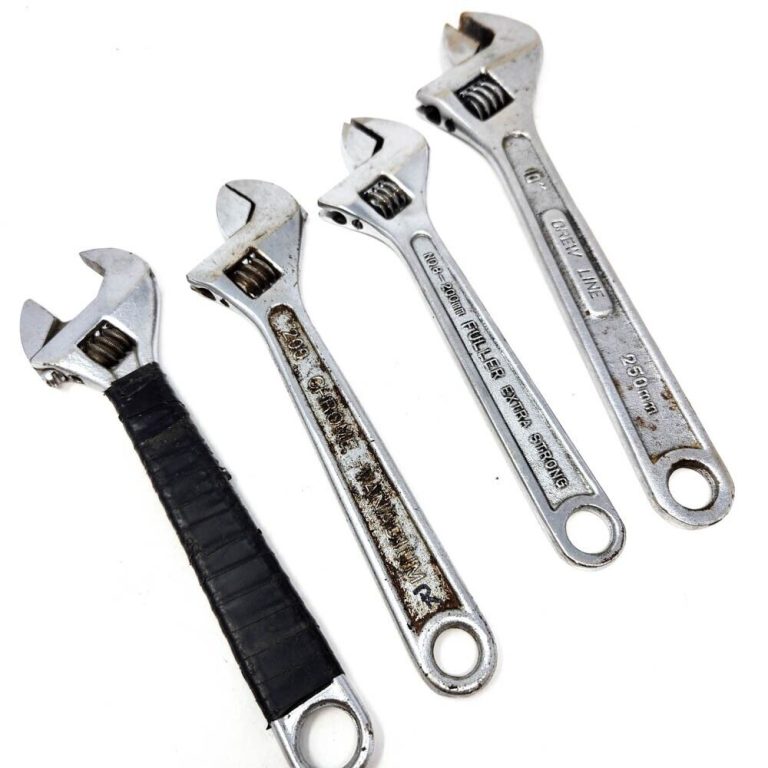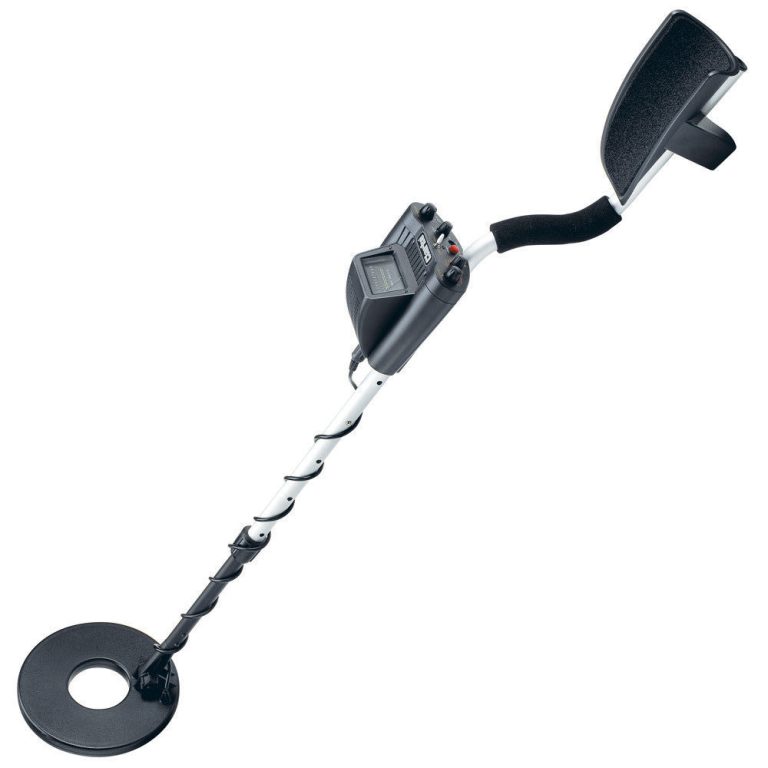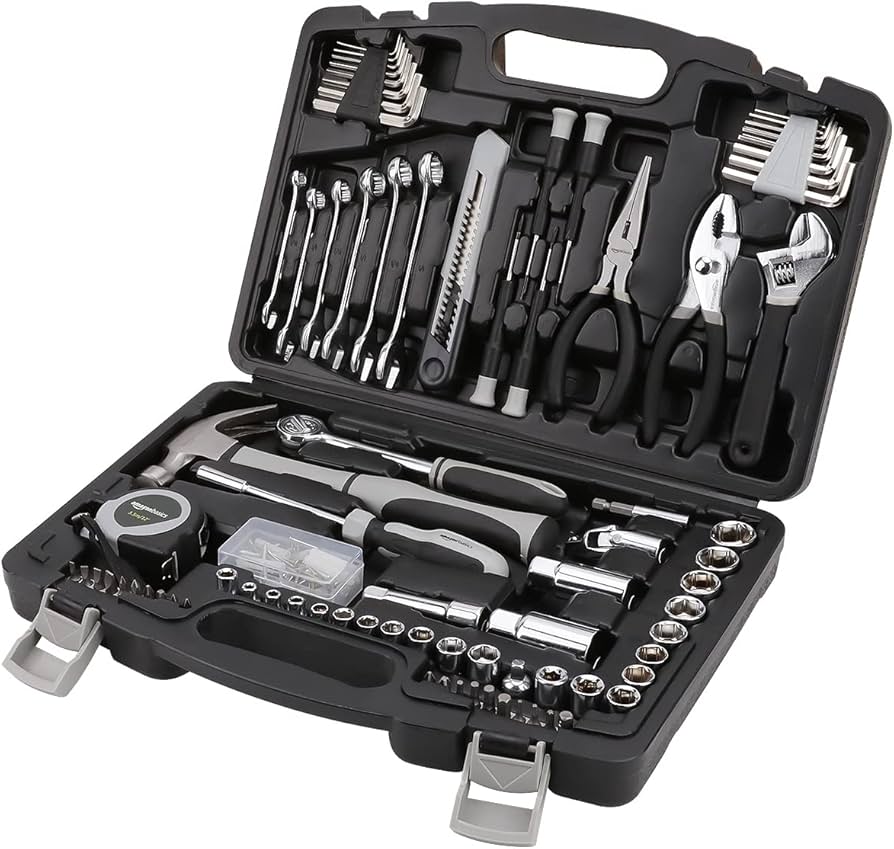
Quick Ways to Clean Rust Off Your Tools
Introduction to Rust on Tools and Its Implications
Rust on tools is more than just a cosmetic problem. It can reduce their effectiveness, make them harder to use, and even shorten their lifespan. As tools become encrusted with rust, they may become unsafe to handle. The rough, pitted surface of a rusted tool can cause injuries, from splinters to tetanus if not managed properly. For those who rely on tools for work or home projects, keeping them in good condition is key. How to clean rust off tools? Rust formation on tools is not just an issue of function; it also speaks to their maintenance and quality.
For instance, a well-cared-for toolbox signals professionalism and pride in your craft. On the flip side, tools plagued with rust can reflect poorly on one’s attention to detail and care. Thus, understanding how to clean rust off tools is essential. It ensures they perform optimally and also presents a positive image. Regular maintenance can save money in the long run. By preventing rust, you avoid having to replace expensive equipment prematurely. In the following sections, we will explore various methods to remove rust and prevent its formation, using both household items and commercial products.
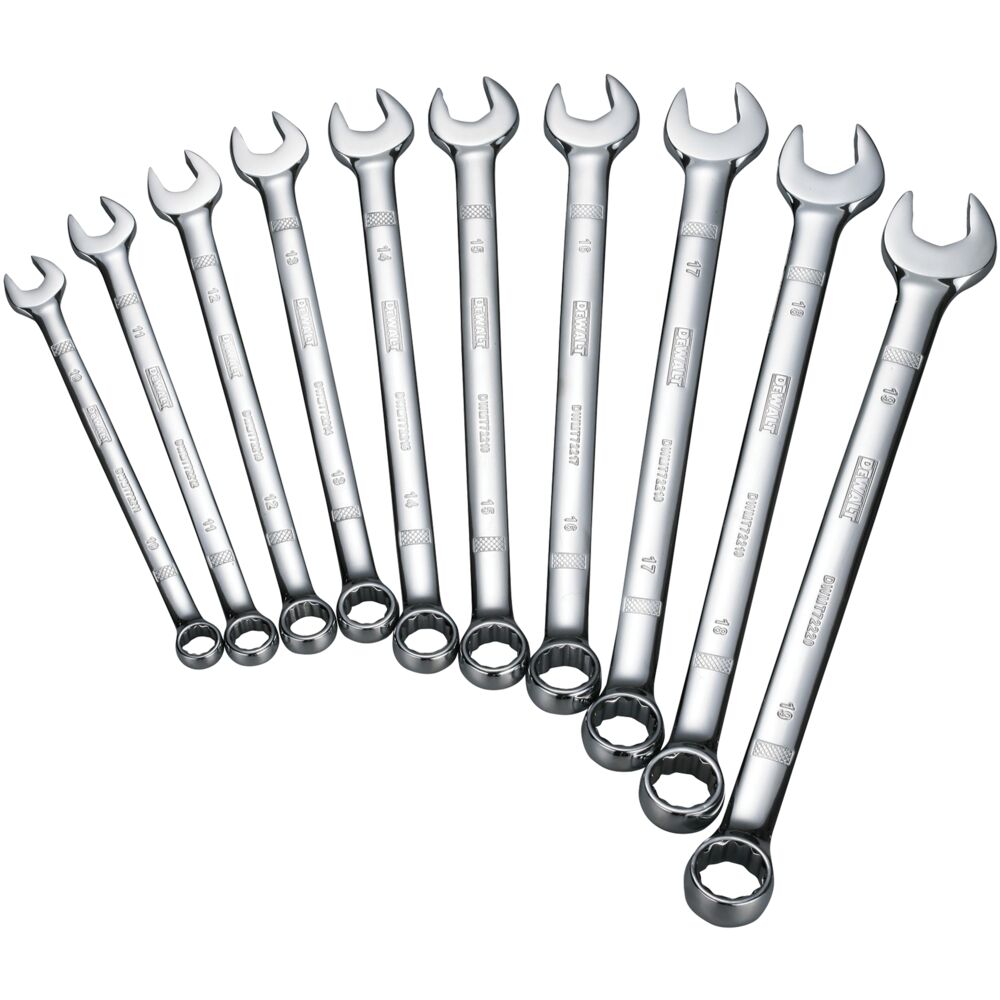
The Chemistry Behind Rust Formation and Prevention
Understanding the chemistry of rust formation is key to knowing how to clean rust off tools. Rust occurs when iron combines with oxygen in the presence of water or moisture. This process is called oxidation. It leads to the creation of iron oxide, or rust. Prevention starts with understanding this reaction. To stop rust, keep tools dry and reduce exposure to air and moisture. Here’s a basic guide to the science behind rust and how to prevent it.
- Iron + Oxygen + Moisture = Rust: Iron-based tools exposed to oxygen and water will rust over time.
- Barriers Help: Applying oils or paint creates a barrier, stopping air and moisture from reaching the metal.
- Use Desiccants: Keeping tools with silica gel packets absorbs moisture that may cause rust.
- Store Tools Dry: Always dry tools thoroughly before storing them to prevent rust.
By keeping your tools dry, clean, and well-maintained, you interrupt the rusting process. Even if tools are not used frequently, it’s important to check them regularly and keep them in a controlled environment. Simple habits and knowledge of rust chemistry can save your tools from corrosion and prolong their usability.
Utilizing White Vinegar for Rust Removal
White vinegar is not only a kitchen staple but also a mighty rust cleaner. Its natural acidity breaks down rust, making it easy to scrub away. Here’s how to use white vinegar for effective rust removal from your tools.
- Submerge Tools in Vinegar: Place your rusted tools in a container filled with white vinegar. Let them sit for several hours, or even overnight if the rust is stubborn.
- Scrub Off the Rust: After soaking, take a brush and scrub the tools. Rust should come off effortlessly.
- Rinse and Dry: Once the rust is removed, rinse tools with water. Dry them immediately to avoid new rust from forming.
- Repeat if Necessary: If any rust remains, repeat the process. Soak tools for a longer period and scrub again.
Vinegar is safe and inexpensive. It is an excellent first step for removing rust on various tools. Small or large, you can treat them with this method. For extensive rust, multiple treatments might be needed to restore tools to their original state.
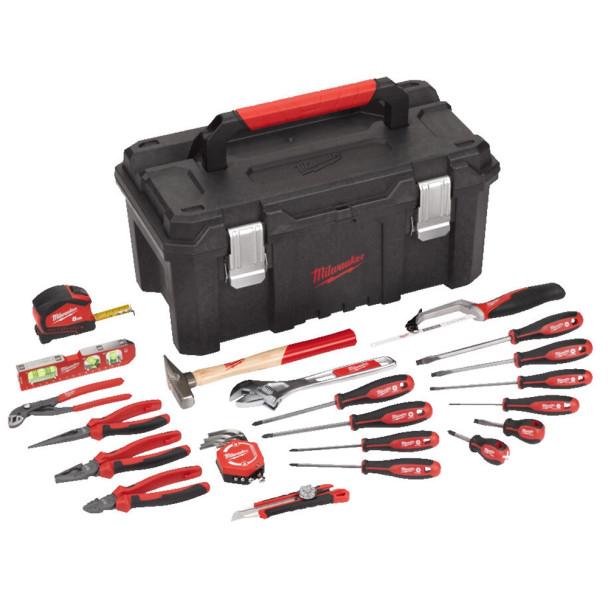
The Efficacy of Baking Soda in Treating Light Rust
Baking soda is effective against light rust. Mix it with water to create a thick paste. Apply this paste to rusted areas on tools. Ensure coverage is thorough for best results.
Let the paste sit for about an hour. Use a brush to scrub the rust away. Rinse with water and dry well to prevent new rust.
Repeat the process if rust persists. Soaking longer may help remove tougher spots.
This method is simple and uses common household items. It’s a safe and non-toxic way to maintain your tools.
Keep in mind, baking soda is best for light rust. For heavier rust, other methods might be needed.
Lemon and Salt: A Natural Rust Removal Duo
Combining lemon and salt creates a powerful rust remover. This natural mix is both effective and simple. To use lemon and salt to clean rust off tools, follow these steps:
- Cover With Salt: Generously sprinkle salt over the rusted area of your tool.
- Squeeze Lemon Juice: Squeeze fresh lemon juice over the salt to dampen it. The acid in the lemon juice will help to break down the rust.
- Let It Sit: Allow the mixture to sit on the rust for about two hours. This gives the acid time to react with the rust.
- Scrub with Lemon: After the time is up, use the lemon rind to scrub the rust off. The rind acts as a natural scrubber that helps to remove the rust without damaging the metal.
- Rinse and Dry: Rinse the tool with water to remove the lemon, salt, and rust. Dry your tool thoroughly to prevent new rust.
For stubborn rust, you may need to use additional scrubbing tools like steel wool. Be sure to rinse and dry your tool after this extra step. Lemon and salt is a cost-effective, eco-friendly option for rust removal on lighter rust stains. It avoids harsh chemicals and utilizes items you likely have in your kitchen.
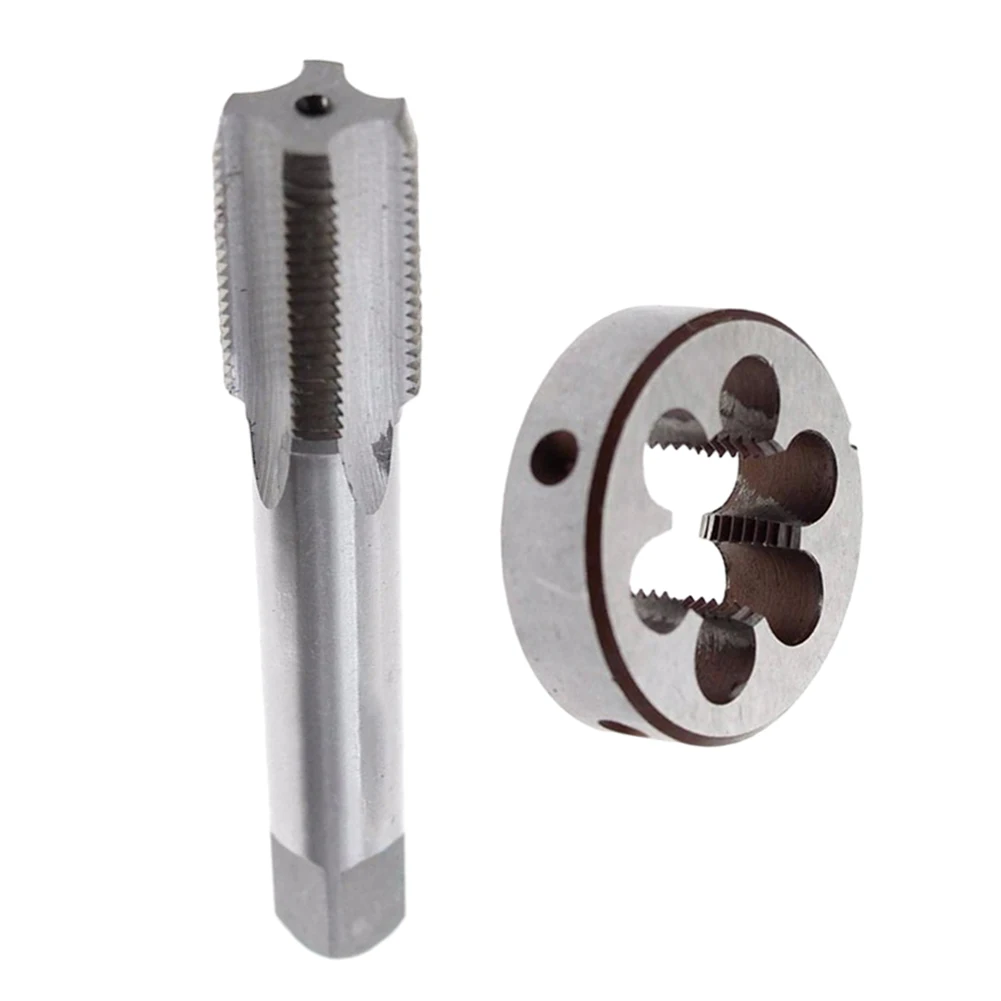
Dish Soap and Salted Potato: An Uncommon Rust Remedy
A salted potato may sound unusual, but it’s a clever trick for removing rust. Here’s a simple guide:
- Cut a Potato: Slice a potato in half to expose a fresh surface.
- Apply Dish Soap: Coat the cut side of the potato with dish soap to help break down rust.
- Sprinkle Salt: Add salt liberally onto the soapy potato surface. It acts as an abrasive.
- Scrub: Rub the salted potato over the rusted areas. The combination of soap and salt gently scrubs rust away.
- Rinse and Dry: After scrubbing, rinse the tool thoroughly to remove any residue. Dry it completely to prevent rust from returning.
This method works well for spots of rust on small, manageable tools. It’s especially handy for tools with intricate parts, where steel wool might be too harsh. Use the potato method as an eco-friendly, gentle alternative to stronger chemicals. Remember to throw away the used potato and not to use it for cooking.
How Citric Acid Can Effortlessly Combat Rust
Citric acid is a hidden gem for rust removal. Found in your grocery store, it’s powerful and safe to use. Here’s how citric acid can efficiently clean rust off your tools:
- Prepare a Citric Acid Solution: Mix a few tablespoons of citric acid powder with hot water. The exact proportions can depend on the size of your task.
- Soak Your Tools: Place the rusted tools in the solution and let them sit. Overnight soaks are ideal for heavy rust.
- Scrub Off the Rust: After soaking, use a brush to scrub away the loosened rust.
- Rinse Thoroughly: Once the rust is removed, rinse tools with clean water.
- Dry Completely: To prevent rust from returning, dry your tools completely.
Citric acid targets rust without damaging the metal underneath. It’s particularly useful for intricate tools where other methods may be too harsh. Repeat the process if all rust isn’t removed the first time. Remember to wear gloves to protect your skin while working with citric acid.
Aluminum Foil: A Gentle Solution for Delicate Tools
When faced with delicate tools with rust, aluminum foil comes in as a gentle hero. This common household item is not only for kitchen use. It’s a mild abrasive that can remove rust without further scratching your tools. Here’s how to use it:
- Crumple the Foil: Take a piece of aluminum foil and crumple it into a ball. This increases its surface area.
- Dip in Water: Lightly dip the crumpled foil in water to enhance its rust-removing properties.
- Gently Scrub: Use the foil to scrub the rusted areas of your tool. The foil’s structure allows it to reach nooks and crannies.
- Wipe Clean: After scrubbing, wipe the tool with a clean, dry cloth to remove any residue.
- Inspect and Repeat: Check if the rust is gone. If some remains, repeat the scrubbing process.
The softness of the aluminum foil ensures that your precious tools remain unharmed during the rust removal process. This method works best on smaller tools and those with intricate designs. Keep in mind to use a gentle touch to avoid damage. Additionally, because aluminum is softer than steel, it polishes the tool while it cleans, making it an effective dual-action solution against rust.
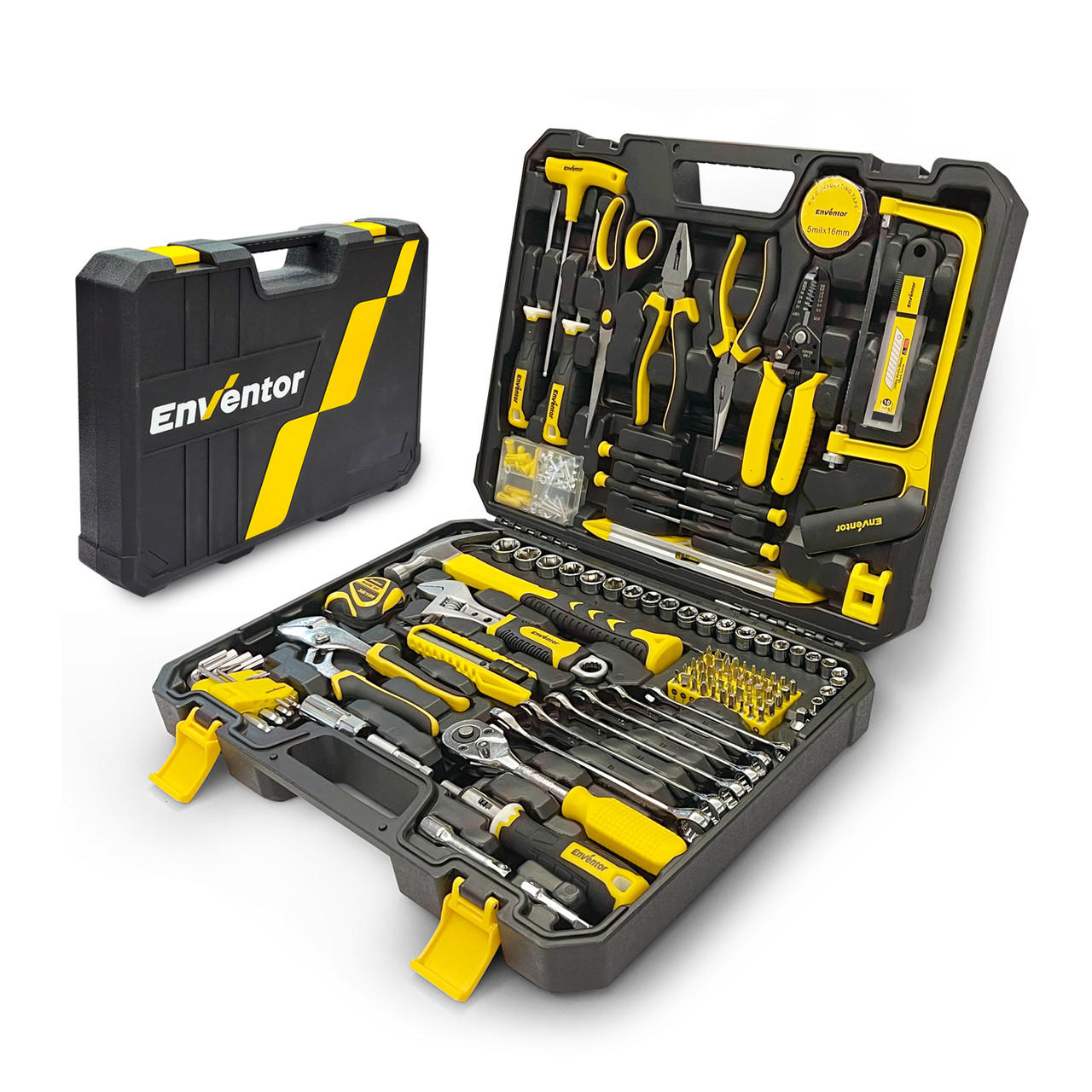
The Surprising Role of Cola in Rust Removal
The idea of using cola as a rust remover may sound odd, but it’s surprisingly effective. Cola drinks contain phosphoric acid, a key ingredient that combats rust. Here is how you can use cola for rust removal:
- Pour Cola on Rust: Apply cola directly to the rusted areas of your tools. Make sure to cover them completely.
- Let It Soak: Allow the cola to sit on the metal for a few minutes. It needs time to work on the rust.
- Scrub Away Rust: After soaking, take a brush and scrub the metal. Expect to use some elbow grease here.
- Rinse and Dry: Once the rust comes off, rinse your tools with water. Then, dry them immediately.
- Repeat if Needed: If rust persists, apply cola again and repeat the process. You might need a few tries.
Although it sounds like a quirky household tip, cola can effectively remove rust from tools like screws, bolts, and other small items. It’s a handy option when you’re out of commercial rust removers or prefer not using harsh chemicals. Just be prepared for a little scrubbing. Keep in mind, it’s important to rinse and dry your tools thoroughly to prevent new rust from forming.
Commercial Rust Removal Products Worth Considering
When homemade remedies won’t do, consider commercial rust removers. These products often work faster and require less effort. Here are a few to keep in mind:
- Metal Glo: Works on various metals without damaging them. Use it on cookware and knives. Rub it in the direction of the grain.
- Goo Gone Rust Remover Spray: Great for outdoor surfaces like patio furniture. Simply spray, let sit, and wipe clean.
- Naval Jelly: Good for heavy-duty items. Apply, wait for rust to dissolve, and rinse off. It’s powerful but easy to clean up after.
- WD-40: Not just a lubricant, WD-40 is also effective at removing rust. Spray, leave it for a moment, then scrub off the rust.
- Paste Wax: Apply to prevent rust from forming. Also gives a nice shine to tools and surfaces.
When using commercial rust removers, always follow the instructions. Test on a small area first. Ensure you have good ventilation, and wear gloves if needed. These products can give your tools a new lease on life with minimal effort. Remember to dry your tools after rust removal to keep them in the best condition. Prevent future rust by storing tools in a dry place. With the right products, you can maintain tools for years to come.
Tips for Preventing Rust on Tools
Properly storing and maintaining your tools can drastically reduce the likelihood of rust formation. Here are some practical tips for keeping your tools rust-free:
- Keep Tools Dry: Water is rust’s ally. After using your tools, always dry them thoroughly.
- Use Protective Coatings: Apply oils or specialized coatings to create a barrier against moisture.
- Control Humidity: Store your tools in a dry, low-humidity environment to prevent moisture from settling in.
- Regular Maintenance: Wipe your tools clean and inspect them regularly for early signs of rust.
- Use Desiccants: Silica gel packets can absorb excess moisture. Place them where you store your tools.
- Don’t Neglect Small Tools: Items like screws and nails can rust quickly. Keep them in airtight containers.
By following these simple tips and making sure to clean rust off tools promptly when you notice it, your tools can last for years without significant corrosion, saving you both time and money.
